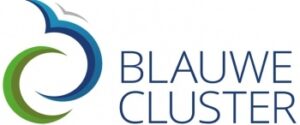
In Europe, scaling up commercial aquaculture is hampered by high production costs and the pressure on local resources. In this project, an indoor cultivation concept for shrimp is developed that does not require water changes and produces virtually no waste. The new concept is based on improved clear water technology
In the last decade, the interest in aquaculture in Flanders has grown strongly among both companies and the government. A problem that makes further scaling up to commercial sites more difficult is the high production cost and the increasing pressure on local resources (water, space and raw materials).
From this point of view, the partners in the C-Shrimp project aim to produce larger volumes of seafood on smaller surfaces at a competitive market price. Moreover, sustainable breeding principles are envisaged.
The general objective of this project is to develop an indoor breeding concept for shrimps in which water does not need to be changed and virtually no waste is produced. The new concept is based on improved clear water technology, enabling intensive shrimp farming.
At the same time, the footprint will also be reduced by recycling waste into a product that promotes the health of the shrimp.
With the support of VLAIO and the European Union.
C-shrimp will:

